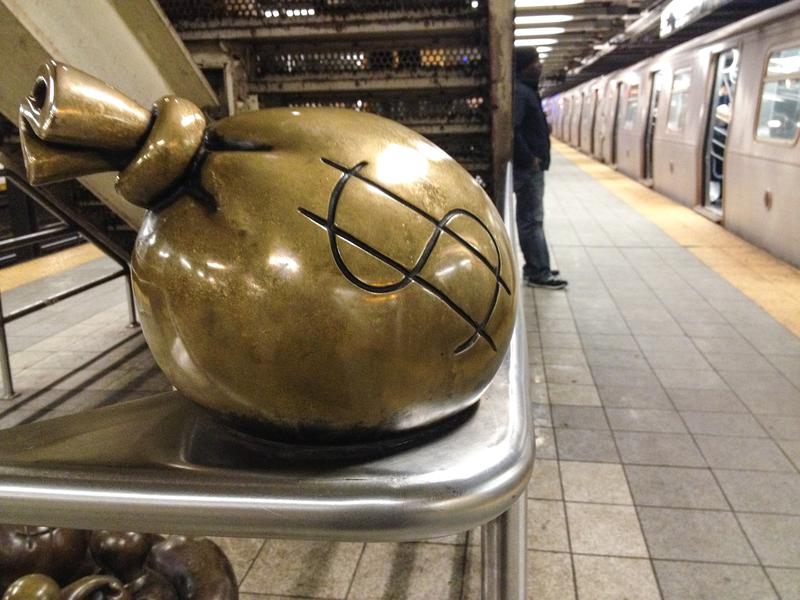 Transportation Nation
Transportation Nation
Unfunded MTA Capital Program Now Legal Fodder

A subway derailment has become the latest manifestation of the funding battle between the state and city over the MTA's capital program.
As first reported in the Daily News, two people hurt in last month's G train derailment have filed paperwork stating they intend to sue New York City and the MTA. According to attorney Sanford Rubenstein, "a feud between the MTA and City Hall over funding for maintenance of our subway system should not be happening when the result may very well be the risk of future problems and serious injuries being suffered by those who ride our subways.”
Yes, this cycle's capital program really has gotten that contentious.
Some background: every five years, the MTA pulls together a list of its big-ticket investments — things like new equipment, a new fare payment system (goodbye, MetroCard), the next phase of the Second Avenue Subway. This list has to be approved by the Capital Program Review Board before the MTA can move forward on any of the items. There's always some back-and-forth, but usually the capital plan is approved sometime in the second quarter. But here we are, in October, and the 2015-2019 plan is not yet final. That's the longest the MTA has ever gone without an approved capital plan.
It may be because the plan has become a proxy for the tension between Governor Andrew Cuomo and Mayor Bill de Blasio. The two can't get on the same page about how much the city should contribute to the capital plan. Speaking last Friday on NY1, Cuomo said because the bulk of the MTA operates within the five boroughs, the city needs to pay more. "I’m proud to fund the $8 billion," he said, "but 80 percent of it is in New York City and that’s where these benefits are going to go."
But on Monday, de Blasio reiterated his position that the city has already offered to contribute more to an MTA capital plan than ever before. Besides, he said, "obviously, the MTA is the state's responsibility. The governor names the head of the MTA, the governor has a majority of the appointments on the MTA board. The state's responsibility is to ensure that the resources are there."
This has left the MTA in the position of, as one insider put it, fishing for spare change in the sofa cushions. The agency has said it needs to have an approved plan as soon as possible, and it wants to put something on the table in October. Meanwhile, talks between the city and state are ongoing.